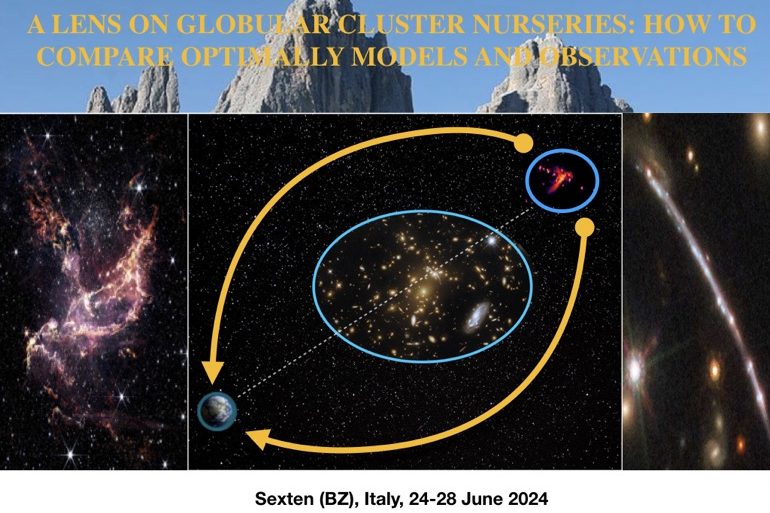
A lens on globular cluster nurseries: how to compare optimally models with observations
LOCATION: Sexten Primary School - Via Panorama 6, Sexten
DETAILS
During the last decades, strong gravitational lensing has turned out as a powerful tool to probe distant objects down to very small scales. High-precision lensing models of galaxy clusters can now be built using many multiply lensed sources, which generally span a broad redshift range. At the same time, deep high-redshift studies have allowed the detection of extremely faint objects, some of which present stellar masses that are fully within the mass domain of globular cluster precursors, with the number of known systems presenting such features growing at a phenomenal rate.
Despite the plethora of models developed to interpret this growing amount of data, the mechanisms which originated globular clusters (GCs) and their multiple stellar populations are far from being clear. The aim of this workshop is to bring together a group of scientists active both in the field of gravitational lensing and galaxy formation models, to foster the knowledge exchange between these fields and deepen our understanding of the physical conditions in which GCs originated.
In particular, in this workshop we will discuss 1) what are the physical conditions where such systems emerged and the role of the most fundamental quantities in determining clustered star formation 2) how the exploitation of gravitationally lensed fields may help us to improve the current knowledge of star cluster formation and galaxy formation 3) how to optimize the comparison between observations and hydrodynamic simulations and create mock catalogues of extremely compact systems at high redshift.
This workshop is by invitation only
RELATED FILES
FEE
Senior € 230,00 Student. € 200,00
WORKSHOP CODE FOR PAYMENT
LNS24
ORGANIZERS
Francesco Calura, INAF-OAS, Bologna, Italy
Claudio Grillo, Univ. Milano, Italy
Anita Zanella, INAF-OA Padova, Italy
Piero Rosati, Univ. Ferrara, Italy
Francesca Rizzo, N. Bohr Institute, Denmark
Carlo Nipoti Univ. Bologna, Italy
